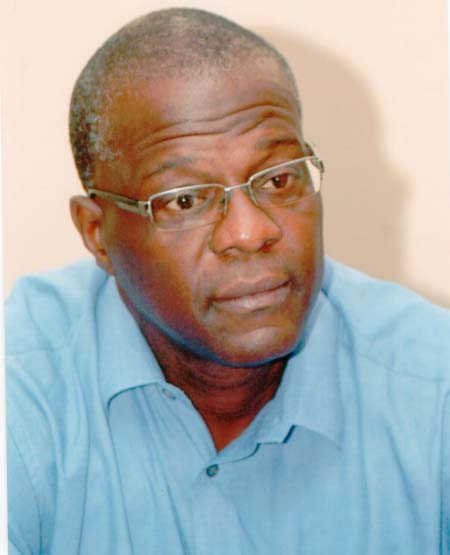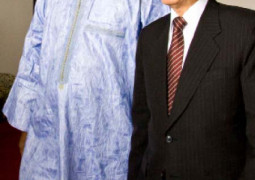
Today, we face new challenges. In response to higher and more volatile food prices, the impacts of climate change and a growing concern about how to feed the world’s ever expanding population, we must think in terms not just of expansion, but a real transformation of agriculture and rural development.
In recent years, various projects in the country have been scaling up what is believed to work. This includes strengthening value chains, extending rural finance, and creating new market opportunities for smallholders and other poor rural people. We have also been exploring public-private partnerships in support of smallholder agriculture, as the private sector has become the engine of growth in rural economies.
With the tripartite Matching Grant arrangement - CISF, Nema will continue the process of innovating, developing and building medium-term financial services adapted to groups and individual-based SMEs. The main innovative elements of the proposed scheme include a tripartite contribution to the scheme wherein three parties will provide the funds for asset acquisition for either a start-up or growth business upon a submission of a viable business plan.
How does it work?
Participating SMEs (Individuals or groups) contribute at least 10% of the asset value from their own savings, family friends or Business Angels (as the case may be).
Participating private sector financial service providers (basically banks and non-bank financial service providers (FSP’s), notably - Reliance Financial Services – RFS, Arab Gambia Islamic Bank – AGIB, First International Bank – FIB and Trust Bank Ltd – TBL, whom have all signed-up to the scheme through a Memorandum of Understanding) will put up 45% through interest-bearing loans to the SMEs on market-driven terms; and
Nema contributes grant funds of not more than 45%.
Clients will develop and submit financially viable business plans (with the assistance of business development services, to selected FSPs for scrutiny and consideration for financing. The FSPs, themselves would apply their own rigorous criteria to evaluate the viability of the business plans, without undue influence from other parties. The assets financed will be used as collateral. To ensure sustainability of this scheme, Nema would mobilize appropriate technical support and mentoring for the participants – providing all the necessary training and coaching. The lending terms and conditions set up for the facility would be made as flexible as possible to kick-start enterprises.
Eligibility criteria have been established, to screen the financial status of candidate borrowers to avoid the risk of elite capture. However, the underlying purpose of the activity is to make value - addition services available to the mass of small-scale producers by bringing financially viable businesses into being and this will not happen if the eligibility criteria are over-stringent. Technical assistance would be provided to participating group-based enterprises to enable them to establish savings schemes that promote community-level capitalization from which funds can be drawn to fund term financing in the future.
Group-based participating SMEs would have to establish and implement a user fee scheme to finance asset replacement in due time, to be held in accounts with participating FSPs and used in the interim to undertake other business-oriented activities that will generate more revenue to graduate them out of dependency on subsidies.Such linkages will enhance the credit worthiness and bankability of the enterprises and should result in better access to financial services such as bigger loans, insurance, remittances and lower interest rates. Through mentoring of the poorest and internal social support arrangements, all Kafo members will be encouraged to participate in any joint business ventures to facilitate equitable access by all women, including the poorest. For the youth, the beneficiary contribution will be set in consultation with the youth and the community.
Finding an ‘Angel’
Many rural folks may not be in a position to contribute even the modest 10% investment, despite their willingness, ability, skills and experience to produce at a large scale when given the opportunity. Many contacts could therefore be made informally. For example: personal friends and family; wealthy business contacts; major suppliers and clients of the business. This could well be the start of a formal Business Angels Network in The Gambia. When actively up and running, many business angels can use these networks to find out about interesting investment opportunities.
There is an urgent need in this country to build up networks of wealthy, skilful and experience firms/individuals for the purpose of forming partnerships in new inclusive businesses that would create opportunities for the marginalized rural poor – and we are certainly not in short supply of this cadre of personalities. .
With access to the right means and knowledge, even the smallest farmers can move from subsistence farming and contribute to global food supply. Initiatives like Nema’s, show how we can secure a steady income for farmers, transforming food production into an income-generating venture. By building on these ideas, we can make major strides in feeding the hungry and also improving incomes in our ultimate goal of eradicating poverty, whilst creating wealth in the country.
As employees, employers, consumers, and suppliers combined, the actors in the low-income market segments gain access to the formal economy; including provision of training, access to finance and income. As consumers, low-income customers can benefit from products and services that meet their needs in an affordable way. If business does both, it opens up perpetual poverty trap to the virtuous cycle of business in development.
Such an inclusive model, functions by engaging the poor in any stage of the business chain. This would result in creating more employment, income, technical skill and local capacity. The basic idea here is to use the know-how and capital base accumulated at the tip of the economic pyramid to develop its base.
Our ambition is to create vibrant rural economies that contribute to poverty reduction, while helping smallholders to play a critical role in contributing to food and nutrition security. No single entity – whether public or private, including smallholder farmers themselves – can succeed by itself. But, by working together, we can create inclusive partnerships that are sustainable, productive, and profitable.
The United Nations had declared 2014, the International Year of Family Farming (IYFF) to recognize the importance of family farming in reducing poverty and improving global food security. What significant in-roads did we make last year in this respect? Did 2014 see family farming playing a crucial role in poverty elevation and improving food security in this country?
As we proudly celebrate 50 years of self-rule, counting on the many achievements and breakthroughs that this country has experienced, let us sit back for a moment and take stock of how we could have doubled our efforts to increase the net gains that we are so proud of. In looking ahead into the next 50 years, let all stakeholders (Public/Private/Communities) therefore join in promoting new development policies, not only at the national but also regional levels, that will help smallholder and family farmers eradicate hunger, reduce rural poverty and continue to play a major role in global food security through sustainable smallholder, market demand agricultural production.
Author: Banky Njie is a Business Development Officer at the National Agricultural Land & Water Management Development Project (Nema), Ministry of Agriculture.
Read Other Articles In Article (Archive)




